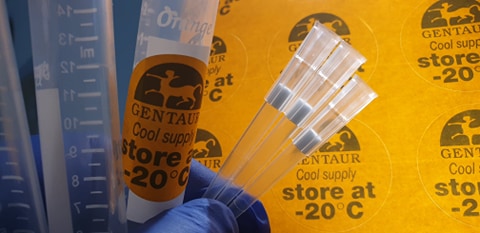Due to their high specificity and selectivity, the antibodies have become a biochemical tool of great importance in many applications in the field of biomedicine and other fields.
In this post we collect the main 5 applications of monoclonal antibodies .
1.- APPLICATIONS OF MONOCLONAL ANTIBODIES IN BIOMEDICAL RESEARCH
The high specificity and sensitivity of antibodies make these agents highly useful as biomedical research reagents for the identification, characterization, quantification or purification of different molecules, as well as for blocking cellular mechanisms or marking cells.
Some of the techniques using antibodies include:
- Western Blot
- ELISAs
- Immunohistochemistry and immunocytochemistry
- Immunoprecipitation
- Flow cytometry
- In vivo preclinical studies

2.- APPLICATIONS OF MONOCLONAL ANTIBODIES IN CLINICAL DIAGNOSIS
Monoclonal antibodies have also become fundamental components in many diagnostic tests for infection detection, allergy identification, hormone quantification, and biomarker identification, among others.
- Diagnosis by biochemical analysis
Monoclonal antibodies are used as reagents in diagnostic tests based on techniques such as ELISA, RIA or lateral flow.
Some of the best-known applications include pregnancy detection, the identification of hormonal disorders or the detection of tumor markers.
- Diagnostic imaging
Monoclonal antibodies can also be labeled and administered intravenously to locate specific sites that will later be detected by radioactivity.
Some of these applications include the diagnosis of cardiovascular diseases, some types of cancer and bacterial infections.
3.- APPLICATIONS OF MONOCLONAL ANTIBODIES IN THERAPY
Monoclonal antibodies are also used in the treatment and monitoring of various diseases. These applications are divided into two main groups:
- Therapeutic agents:
- Administration of antibodies to induce passive immunity in cases of immunodeficiencies
- Antibodies against specific targets of certain diseases such as multiple sclerosis, rheumatoid arthritis or different types of cancer such as colorectal or breast cancer.
- Signaling or marking agents
Monoclonal antibodies can be conjugated to different molecules such as toxins, drugs or radioisotopes so that they can be selectively transported to the target tissue, thus increasing their efficacy while reducing their toxicity.
4.- INDUSTRIAL APPLICATIONS OF MONOCLONAL ANTIBODIES
The monoclonal antibodies have become an indispensable tool in protein purification obtained a large scale by genetic engineering techniques, for subsequent therapeutic use. They are used to purify therapeutic proteins such as interferon, insulin or growth hormone, among others.
Genetically engineered vaccines against various viral or bacterial antigens can also be purified using monoclonal antibodies.
On the other hand, in the field of the food industry, antibodies also play a critical role in the area of food safety and food traceability , using techniques such as ELISA or Western Blot or the use of biosensors.
5.- OTHER APPLICATIONS OF MONOCLONAL ANTIBODIES
Among the most recent applications of monoclonal antibodies we can find the following:
- Catalytic monoclonal antibodies
Also known as Catmabs or Abzymes , they have catalytic activity similar to that of enzymes, with the advantage that while enzymes and their catalytic functions are limited, antibodies can be generated against practically any antigen of interest.
- Autoantibody fingerprint
It is a new category of autoantibodies not related to diseases and specific to each individual, forming a “fingerprint of autoantibodies” that can be used to identify people in forensic medicine.

